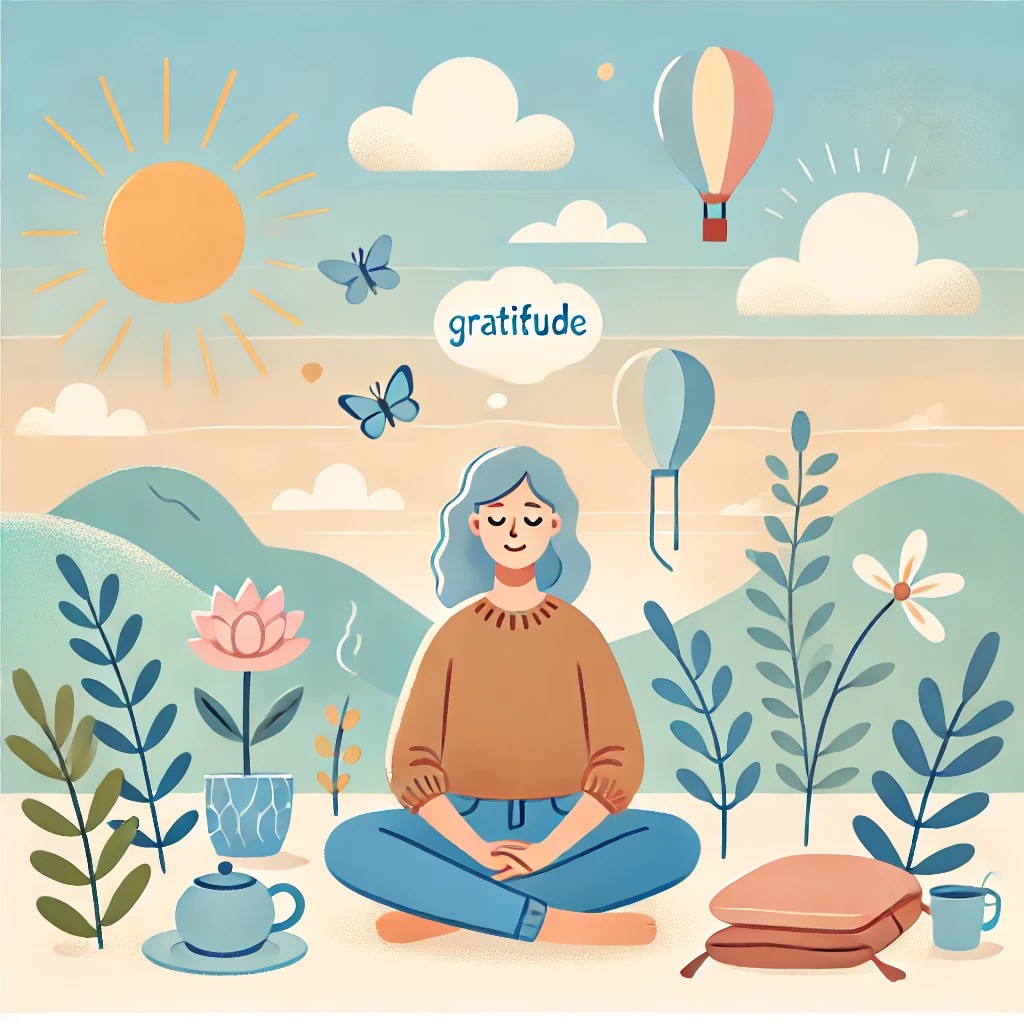Mindfulness Tips
If you’re feeling stressed, anxious, or just plain overwhelmed, you’re not alone. Sometimes, life’s hustle and bustle can make it hard to focus on staying calm. Here, we’ll walk you through some quick and simple mindfulness tips for reducing anxiety and reclaiming that sense of inner peace. These tricks don’t take much time, and you can easily slip them into your day whenever you need a break. Ready to give it a try? Let’s dive in!
The 5-4-3-2-1 Grounding Technique: An Instant Calming Method
When anxiety starts to creep in, the 5-4-3-2-1 grounding technique can work wonders. It’s all about using your senses to focus on the present moment, which can be incredibly soothing when your mind feels scattered. Here’s how it works:
- Acknowledge 5 things you can see around you. Take in the colors, shapes, and details to shift your mind from stress to the physical world.
- Identify 4 things you can touch. This could be the fabric of your clothes, your phone, or even the table in front of you. The physical sensations help keep you anchored.
- Notice 3 things you can hear, such as the hum of the air conditioner, birds chirping, or distant traffic.
- Name 2 things you can smell, even if it’s just the fresh air or your favorite candle.
- Recognize 1 thing you can taste. Even a sip of water or chewing gum will do.
This quick technique is a favorite trick to reduce anxiety because it doesn’t require any special setup. You can do it anywhere, anytime. Just a few minutes of mindful grounding can help guide you back from overthinking and into a calm state.
Mindful Gratitude: Finding Peace in Positive Reflections
Sometimes, it’s the small things that make the biggest difference. When anxious thoughts start to build up, practicing gratitude can be a simple but powerful way to focus on what’s good in your life. Think of three things you’re thankful for right now—it doesn’t have to be anything big! Maybe it’s the warm cup of tea you had this morning, a cozy blanket, or even a friendly smile from a neighbor.
Practicing gratitude helps you see beyond your current worries, shifting your perspective toward positivity. And guess what? It’s been shown to have lasting effects on reducing anxiety and overthinking! Try this: when you wake up or just before bed, jot down three things you’re grateful for in a journal. Over time, this habit becomes a natural reminder of all the positives you might otherwise overlook.
Five-Minute Check-Ins: Short Exercises for Quick Relief
If you’re looking for a fast way to bring mindfulness into your day, five-minute check-ins are perfect. Set a timer for five minutes, close your eyes, and simply focus on your breath. Take deep, slow breaths, feeling the rise and fall of your chest or the cool air passing through your nose. This exercise not only calms your nerves but also teaches you how to practice mindfulness for anxiety, helping you become more aware of your emotions.
These check-ins aren’t about perfection. You might still have racing thoughts or feel distracted, and that’s totally okay. The goal is to give yourself a moment to pause and acknowledge where you are. If anxious thoughts pop up, try not to judge them. Just let them float by, like clouds drifting in the sky. This is one of those tricks to reduce anxiety that you can fit into even the busiest day, giving you a quick mental reset whenever you need it.
Nature Therapy: Bringing Mindfulness Outdoors for Relief
Have you ever noticed how much calmer you feel after a walk in nature? There’s something incredibly soothing about being outdoors, and it can work wonders for anxiety relief. Next time you’re feeling overwhelmed, take a few minutes to step outside. Notice the colors of the leaves, the sound of birds, or even the feeling of sunshine on your skin. Engaging with nature is like a guided meditation for anxiety and overthinking, as it naturally brings your focus to the present moment.
If you’re not near a park, you can still enjoy a mindful moment outside. Look up at the sky, feel the fresh air, and just breathe. Practicing mindfulness in nature can help you feel grounded, reminding you that there’s a bigger world beyond your worries.
Mindfulness isn’t difficult. We just need to remember to do it.” – Sharon Salzberg

